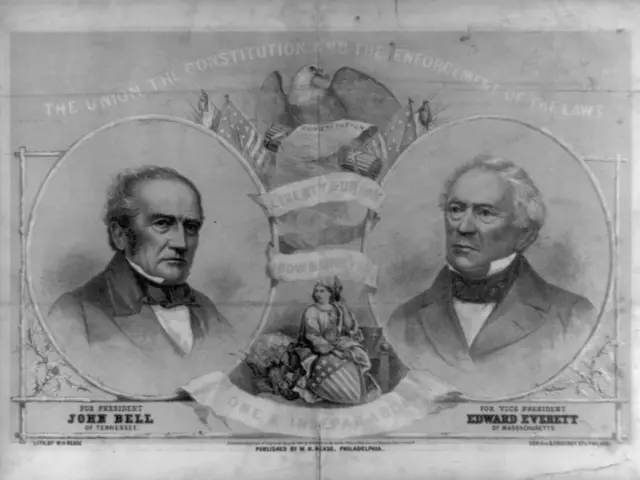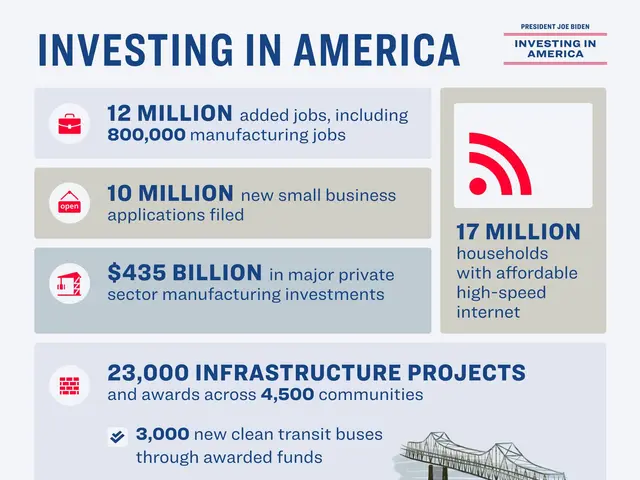Two prominent AI-related stocks predicted to plummet by 49% and 62% by certain financial experts on Wall Street in 2025.
Tesla's (TSLA -3.30%) shares have soared by 75% since the presidential election. However, most financial analysts now believe the stock is overinflated. The median 12-month target price of $275 per share implies a potential 38% decline from the current price of $440.
Joseph Spak from UBS is particularly skeptical. He increased his price target to $226 per share in November but maintained a sell recommendation. Spak believes the market is giving Tesla too much credit for its AI ambitions. His forecast implies a 49% decrease.
Similarly, shares of Palantir Technologies (PLTR -2.40%) have surged more than 4 times this year due to a series of positive financial reports. Yet, many analysts now view the stock as overpriced. The median 12-month target price of $39 per share suggests a potential 47% drop from the current price of $74.
Brent Thill from Jefferies is particularly bearish. He reiterated his price target of $28 per share in November and kept his sell recommendation. Thill sees valuation as a significant concern for Palantir. His forecast implies a 62% fall.
Here's what investors should understand about Tesla and Palantir.
Tesla: The stock UBS predicts could fall 49%
Tesla reported promising third-quarter financial results. Revenue increased by 8% to $25.1 billion, driven by strong growth in the energy generation and storage segment, as well as the services segment (supercharging, insurance). Gross profit margin increased by 195 basis points primarily due to an increase in full self-driving (FSD) sales. Non-GAAP earnings also rose by 9% to $0.72 per diluted share. While revenue and earnings growth were not spectacular, gross profit margin reached 19.8% in the quarter, the highest level since 2022. This was an encouraging sign as Tesla had been dealing with rising interest rates weakening demand, necessitating price cuts that affected profits.
CEO Elon Musk discussed certain points during the earnings call that he had mentioned at the Cybercab event in October. Tesla plans to launch an unsupervised version of its FSD software and open a ride-hailing service to the public in California and Texas next year. This would expand its addressable market. The potential market for autonomous ride-hailing could reach $5 trillion by 2030, as per Statista.
However, Wall Street expects Tesla's adjusted earnings to grow by 29% in the next year. At the current valuation of 180 times adjusted earnings, this looks expensive, but earnings growth may accelerate in the future as Tesla generates more revenue from FSD and expands its robotaxi business. In other words, the current valuation may look less expensive in the future.
Personally, I am not convinced that Tesla's stock will fall 49% as Joseph Spak from UBS suggests. However, I would advise investors to be cautious as shares could experience a significant decline. The post-election gain of 75% reflects the belief that Musk's ties with the new President-elect will benefit Tesla. This belief might be true, but the stock could be volatile without concrete proof. Shareholders who are uncomfortable with this volatility should consider reducing their positions.
Palantir Technologies: The stock Jefferies thinks could fall 62%
Palantir reported impressive financial results in the third quarter. Its customer base grew by 39% to 629, and the average existing customer increased their spending by 18%. This led to a 30% increase in revenue to $725 million, marking the fifth consecutive quarter of accelerated growth. Non-GAAP earnings also increased by 43% to $0.10 per diluted share. Management also raised its guidance, resulting in a forecast of an 26% revenue increase in 2024.
The demand for Palantir's AIP product (its new AI platform) was a significant growth driver in the quarter. AIP strengthens its core data analytics platforms, Gotham and Foundry, by adding support for generative AI. "The launch of our latest platform, AIP, has transformed our business," wrote CEO Alex Karp in his shareholder letter.
Forrester Research ranked Palantir as a leader in AI and machine learning platforms software, which is positive for the company. Spending on AI platforms is projected to grow by 51% annually through 2028. "AI platforms will be the fastest growing technology in the coming years," according to Andrea Minonne, research manager at the International Data Corporation (IDC).
However, Palantir has a significant valuation challenge. Wall Street expects adjusted earnings to grow by 31% in the next year. At the current valuation of 210 times adjusted earnings, this seems excessively expensive. The share price surge this year has primarily been driven by multiple expansion, not earnings growth. This is not sustainable.
I doubt Palantir shares will fall 62% as Brent Thill from Jefferies suggests. However, shareholders with substantial positions should consider selling some (or even all) of their shares. Palantir is surely leveraging a substantial opportunity, but the valuation is not aligned with the company's fundamentals.
In terms of finance and investing, Joseph Spak from UBS suggests that Tesla's stock could potentially decline by 49%, given its current valuation and the market's perceived overvaluation of the company's AI ambitions. Similarly, Brent Thill from Jefferies believes that Palantir's stock could experience a significant fall of 62%, as its current valuation appears to be exaggerated compared to its anticipated earnings growth.








